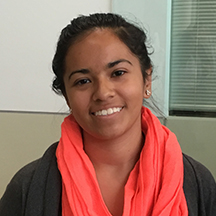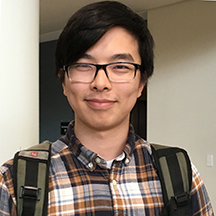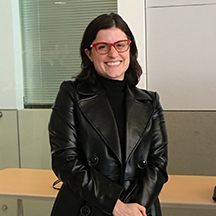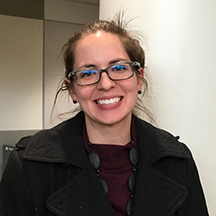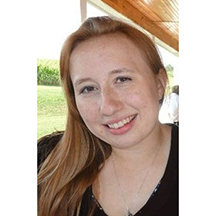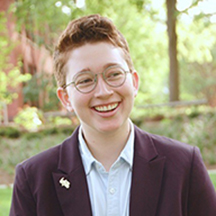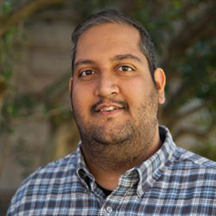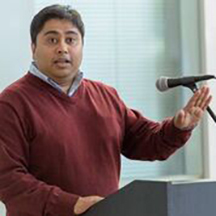Minda Monteagudo noticed a lack of spaces and programming for women of color on campus. So she applied for a Diversity and Inclusion Fellowship to explore ways to meet the need.
Inspired by the example of African-American musician Daryl Davis, Conan Zhao hopes to use his diversity fellowship to explore the use of music in breaking barriers among people.
Monteagudo and Zhao are among six members of the College of Sciences community to be named 2018 Diversity and Inclusion Fellows. The program brings together faculty, staff, and students who individually and collectively advance their action, research, or teaching objectives while enhancing the culture of inclusive excellence at Tech.
Altogether the 2018 fellows from the College of Sciences are:
- Jennifer Glass, an assistant professor in the School of Earth and Atmospheric Sciences (EAS)
- Minda Monteagudo, Ph.D. student working under the guidance of EAS Professor Jean Lynch-Stieglitz
- Raneem Rizvi, a School of Biological Sciences (BioSci) major
- Skyler Tordoya Henckell, a School of Psychology major
- Emily Weigel, an academic professional in BioSci
- Conan Zhao, a research assistant in the lab of BioSci Assistant Professor Sam Brown
The 2018 fellows were announced on Nov. 15 at a poster session showcasing the projects of the program’s inaugural 2017 cohort.
Among the 2017 fellows were three from the College of Sciences:
- Jennifer Beveridge, a Ph.D. candidate supervised by School of Chemistry and Biochemistry (Chem/Biochem) Professor and Chair M.G. Finn
- Calvin Runnels, a third-year biochemistry major who conducts research with Chem/Biochem Professor Loren Williams
- Hussein Sayani, a former Ph.D. student of EAS Professor Kim Cobb, now a postdoctoral researcher in Boston University
The 2017 fellows’ projects inspired and encouraged the second cohort and the audience.
Beveridge partnered with Santanu Dey, associate professor in the H. Milton Stewart School of Industrial and Systems Engineering, to study the attrition of students admitted to Ph.D. programs at Georgia Tech during the period 2002-2012. According to Dey, who presented the project at the poster session, their big take-away is how little is known about the churn of Ph.D. students at Tech compared with undergrads.
Despite the limited data, the study showed clear differences in rates of Ph.D. completion between men and women and among racial groups. The gaps varied across Georgia Tech schools. The hope, Dey said, is to discover the practices of the schools with high rates of Ph.D. graduation across the board so that they can be shared with other units that are not doing so well.
Meanwhile, Sayani teamed up with Jerrold Mobley, public services associate in the Georgia Tech library, and Michelle Gaines, a former postdoctoral researcher in the School of Chemical and Biomolecular Engineering and now an assistant professor of chemistry and biochemistry at Spelman College. Their project, called Culture Xchange, focuses on person-to-person engagement as a means to tear down barriers, said Mobley, who discussed the work at the Nov. 15 poster session.
With the help of 10 volunteers, they are testing the idea. Through structured discussions, collaborative exercises, and paired excursions, participants share not-so-obvious aspects of their daily lives with each other. The hypothesis, Mobley said, is that “anyone who has the opportunity to engage in real one-on-one interactions with any person of any cultural identity, race, creed, etc., has no choice but to respect who that person is and eliminate any biases that they might have had before.”
“Inclusive excellence is a core value of the College of Sciences,” said College of Sciences Dean and Sutherland Chair Paul M. Goldbart. “I am delighted to see so many members of our college community answering the call for grassroots initiatives to promote and strengthen this core value.”
For More Information Contact
A. Maureen Rouhi, Ph.D.
Director of Communications
College of Sciences


